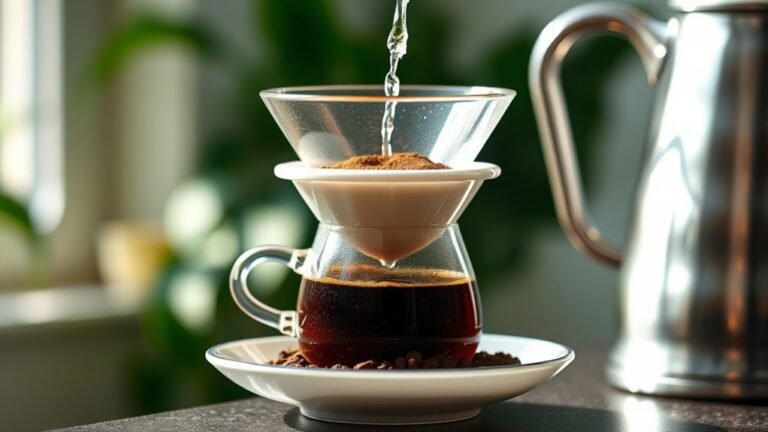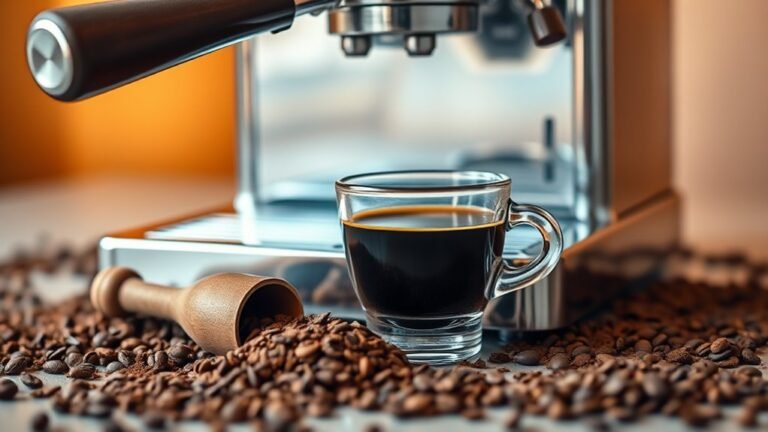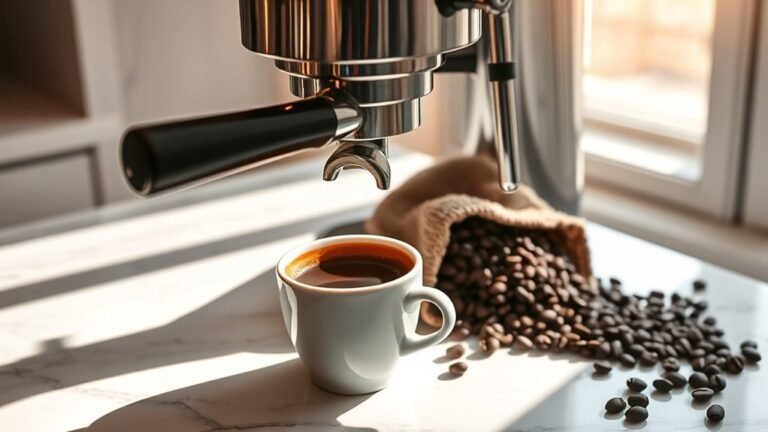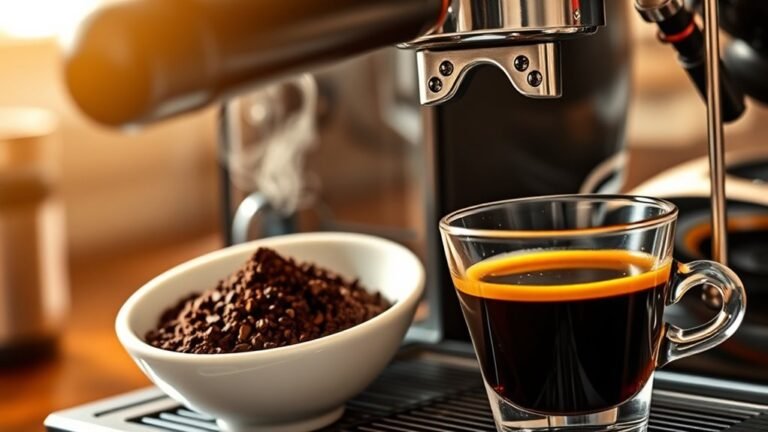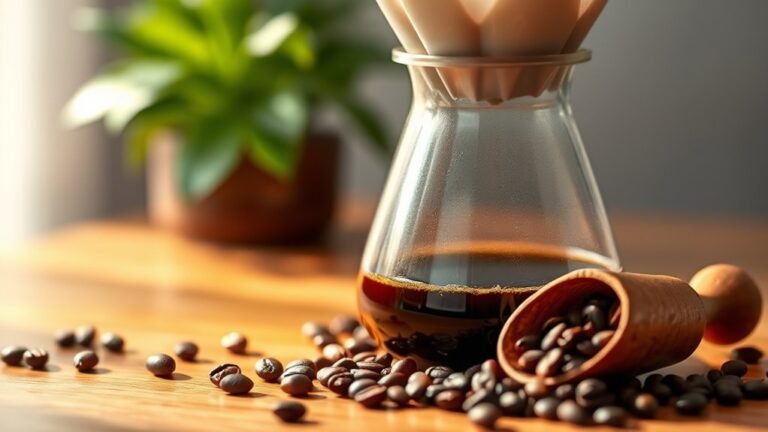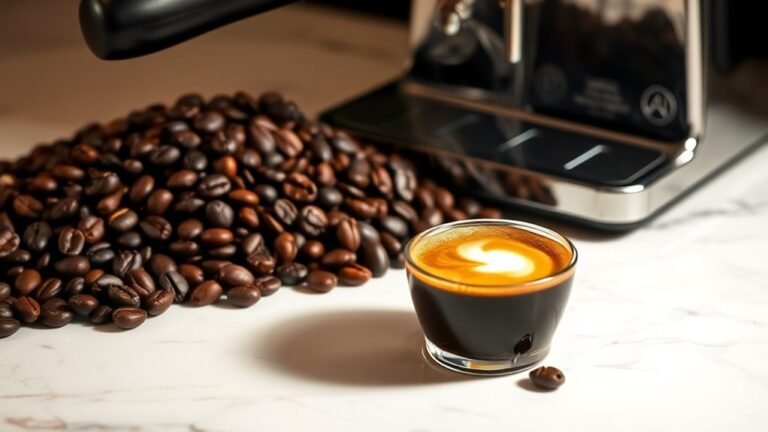Can I Use Espresso Beans for Drip Coffee
Yes, you can use espresso beans for drip coffee, but it’s essential to adjust the grind size for ideal results. Since espresso requires a fine grind, you’ll want to change this to a medium grind for drip brewing to avoid under-extraction or bitterness. The flavor profile of espresso beans brings a rich, intense experience to…

